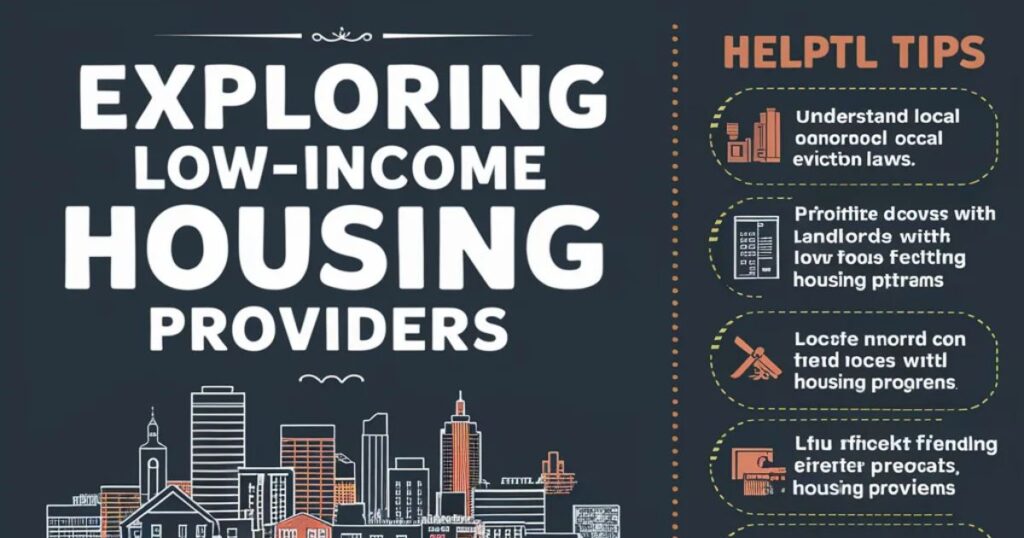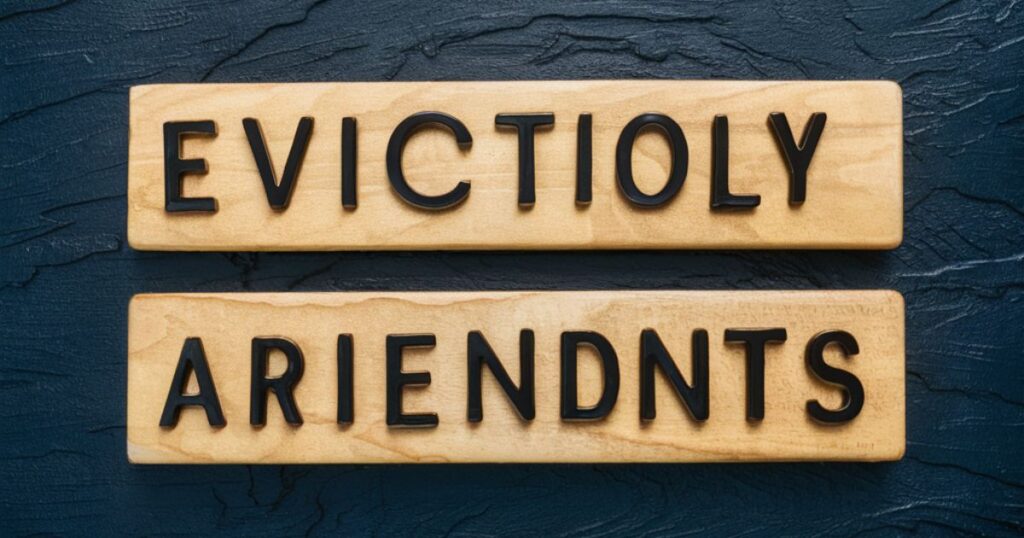Finding an apartment after an eviction can feel like an uphill battle. You search “eviction friendly apartments near me” but the listings often turn out to be dead ends.
Landlords claim they accept those with prior evictions, only to reject your application. It’s a frustrating and demoralizing experience.
However, while the process is undoubtedly more challenging, securing a rental is still possible with the right approach.
This guide will empower you to uncover the best lists of eviction friendly apartments in your area and navigate the process with confidence.
Table of Contents
What are Eviction Friendly Apartments?
Eviction friendly apartments refer to rental units where landlords are willing to consider tenants who have previous eviction records.
While most large property management companies have strict screening criteria that automatically disqualify applicants with an eviction history, some individual landlords adopt a more flexible, case-by-case approach.
There are a few key reasons why certain landlords may be open to renting to those with prior evictions:
- Understanding that circumstances vary: Evictions can sometimes result from temporary financial hardships, family emergencies, or other extenuating situations beyond a tenant’s control.
- Belief in second chances: Some landlords recognize that an eviction doesn’t necessarily define a person’s character or future reliability as a tenant.
- Maximizing occupancy rates: In highly competitive rental markets, being overly stringent with screening criteria could lead to prolonged vacancies and lost income for the landlord.
- Diversifying tenant pools: Landlords may aim to create a diverse, inclusive community by giving opportunities to those who may have faced challenges in the past.
While finding eviction friendly rentals requires extra effort, the key is knowing where to look and how to present yourself positively.
Working with Second Chance Apartment Locators

One of the best resources at your disposal is a “second chance apartment locator” – essentially a realtor who specializes in helping tenants with eviction histories (and other potential blemishes like poor credit or criminal records) find suitable housing options.
These locators leverage their extensive knowledge of the local rental market and relationships with landlords to compile tailored lists of properties that may accommodate your situation.
Many operate on a no-fee basis for tenants, instead collecting a finder’s fee or commission from the landlord if you’re approved.
To find reputable second chance apartment locators in your area, try searching online for “city + second chance apartment locator” or “second chance apartment finder near me”. You can also reach out to local real estate agencies and inquire if any of their agents offer this specialized service.
Example Success Story:
“After my eviction, I felt like I’d never find a new place to live. Then I connected with Sarah, a second chance locator in my city. Within two weeks, she lined up multiple showings at apartments where the landlords were willing to work with me. I secured a great rental and couldn’t be more grateful for Sarah’s expertise.” – James L., Atlanta, GA
Working with an experienced apartment locator provides several key benefits:
- Tailored lists of eviction friendly options: Instead of wasting time contacting landlords who immediately dismiss applicants with evictions.
- In-depth knowledge of local rental market: Locators understand which areas, property types, and landlords are more open to renters with eviction histories.
- Handling negotiations and paperwork: They can advocate on your behalf, explain your situation positively, and ensure all required documentation is properly submitted.
- Ongoing support throughout the process: Locators provide guidance from initial housing search through final lease signing and move-in.
While fees and service models vary, having a knowledgeable professional in your corner can make a world of difference in securing eviction friendly housing.
Read this Post: FINANCIAL ASSISTANCE FOR CAR REPOSSESSION: DON’T LET YOUR CAR GO
Local Housing Rights Organizations
Nonprofit organizations that advocate for tenant rights and fair housing policies are also invaluable sources of support and information for those with an eviction record.
These groups can not only connect you with eviction friendly rental listings in your area, but may also be able to assist with:
- Reviewing your eviction case: They’ll examine whether proper legal procedures were followed and your rights were upheld. If any improprieties are identified, they can advise on appealing or expunging the eviction from your record.
- Understanding tenant protections: Housing advocates ensure you’re informed of all federal, state, and local laws prohibiting housing discrimination based on eviction history alone.
- Finding legal assistance if needed: If you encounter any discriminatory treatment from landlords, they can refer you to attorneys who take on fair housing cases.
To locate a tenant’s rights organization near you, simply dial 211 – the free United Way helpline providing referrals to essential community services. You can also search online directories like stout.com resources or civilrighttocounsel.org about/links.
In addition to guidance on your eviction case and rental search, many of these nonprofits offer broader support services such as financial counseling, job search assistance, childcare resources, and access to temporary or transitional housing options.
Real-World Example: Tenant’s Rights Success Story
“I was evicted because my landlord decided to move his family into my unit with only 30 days’ notice, which wasn’t legal based on my lease terms. The Fair Housing Center educated me on landlord-tenant laws and connected me with a pro bono attorney. We disputed the eviction, reached a settlement, and had the eviction completely expunged from my record. I couldn’t have navigated that process alone.” – Maria R., Queens, NY
For those concerned about affording legal fees, keep in mind that many housing rights organizations offer free or low-cost services to income-qualified clients. Don’t assume you can’t get the help you need.
Exploring Low-Income Housing Providers

If your household income falls within certain limits, take the time to research and apply for low-income or affordable housing options in your area.
While landlords operating these properties still conduct background checks and screening, they are often more understanding and willing to approve applicants with eviction histories compared to their market-rate rental counterparts.
Two authoritative resources can connect you with low-income housing listings and providers in your state:
- The U.S. Department of Housing and Urban Development (HUD)
- Visit resources.hud.gov and select “Find Affordable Housing Near Me”
- Enter your location details to generate a list of local public housing authorities, apartment communities, and landlords offering reduced-rent units
- Filter results based on factors like household size, income limits, accessibility needs, etc.
- AffordableHousing.com
- This comprehensive nationwide database lets you search for low-income rentals by city, state, or ZIP: www.affordablehousing.com
- Use the “Affordability Calculator” to see which listings you qualify for based on your income
- View details like rental rates, utility costs, security deposits, amenities, and more
- Connect directly with landlords through the site to inquire about availability
Many of the low-income properties listed will also indicate if they accept housing vouchers/Section 8, which can make rentals even more affordable if you’re eligible.
When applying for low-income/affordable housing units as someone with an eviction record, focus on demonstrating:
- Current financial stability: Provide thorough documentation like pay stubs, bank statements, tax returns, and reference letters from employers. Highlight any steady income sources.
- Efforts to improve your situation: Prepare a well-crafted rental resume explaining the circumstances around your eviction, what you’ve learned, and how you’ve addressed any underlying issues.
- Willingness to take additional steps: Suggest measures like paying a larger deposit upfront or having a trusted co-signer to mitigate any perceived risk.
Housing providers aim to create stable, harmonious communities for their residents. Presenting yourself as a responsible tenant committed to a fresh start can go a long way.
The Direct Approach: Contacting Private Landlords
Many individual landlords are open to considering tenants with an eviction history if you can demonstrate you’ve learned from the experience and have a stable financial situation currently.
Popular online rental listing platforms make it easy to identify and connect with private landlords in your area:
- Craigslist – Filter for “by owner” rentals in the housing section
- Facebook Marketplace – Browse the “Rentals” category and look for postings from individuals
- Zillow Rentals – Use “Owner” filter under “Listing Type”
- Apartments.com – Look for “Rented by Owner” tag on listings
- PadMapper, Trulia, Rent.com, etc. – Most have filters or ways to identify individual landlord listings
Once you’ve identified promising rental options, don’t hesitate to contact multiple private owners to increase your chances.
Create a template introduction email/message that transparently discloses your eviction history upfront, explains the circumstances briefly, and highlights how you’re a responsible tenant moving forward.
Being upfront and taking accountability can go a long way with private landlords looking to find good long-term tenants. You may even want to suggest having a co-signer or paying a larger security deposit to provide extra reassurance.
“I must have reached out to 30 different landlords after my eviction. The huge apartment complexes just ignored me, but a bunch of individual owners were way more open to hearing me out. One landlord offered to let me rent with three months’ rent upfront as a trial period. After showing I was responsible for those months, she gave me a normal lease renewal. You’ve gotta be persistent, but don’t lose hope!”
In addition to being upfront in your communications, be prepared to provide thorough documentation like:
- Pay stubs/proof of employment and income
- Tax returns/bank statements showing cash reserves
- Solid references from prior landlords (if possible)
- A comprehensive rental resume
The more prepared you are to demonstrate your reliability as a tenant, the more private landlords will be willing to give you a chance despite the eviction.
Increasing Your Chances with Private Owners
Beyond being transparent about your situation, there are additional steps you can take to increase your chances with private landlords:
Offer larger deposits or advance rent payments: Putting more money down upfront helps provide financial security for the landlord while you re-establish your rental track record.
Suggest a “trial period” lease or periodic inspections: Give the landlord peace of mind by agreeing to more frequent rental inspections or starting with a 6-12 month lease before negotiating longer terms.
Bring on a co-signer or use a co-signer service: Having a trusted co-signer who can co-sign your rental agreement provides an extra layer of assurance. If needed, you can utilize a paid co-signer service as well.
Highlighting your reliability, stability, and preparedness: Discuss aspects like your:
- Steady employment history
- Good references from prior managers/landlords
- Participation in financial literacy programs
- Robust rental resume demonstrating you’ve learned from past mistakes
The key is making the private landlord feel as confident as possible that any prior issues are firmly in the past and you’ll be an ideal tenant moving forward.
Bonus Tips for Finding Eviction Friendly Rentals

- Ask about sublet opportunities: If a current tenant needs to get out of their lease early, they may be open to a sublease situation where you can “take over” the rental agreement without the landlord’s screening process.
- Check listings in smaller cities/suburbs: Landlords in less competitive rental markets may have more flexibility to work with tenants who have an eviction history.
- Spread the word to your network: Let friends, family members, co-workers, neighbors, etc. know you’re looking for housing. They may be able to share unadvertised rental leads from landlords they know.
- Be persistent and have backup options: It may take outreach to dozens of potential landlords before you find one willing to accommodate eviction histories. In the interim, explore backup plans like extended stay hotels or Airbnb sublets.
The key is not losing hope or motivation in your housing search. With diligence, preparation, and the resources covered here, securing quality eviction friendly housing is absolutely possible – millions of renters do it every year. Stay positive and keep persisting!
